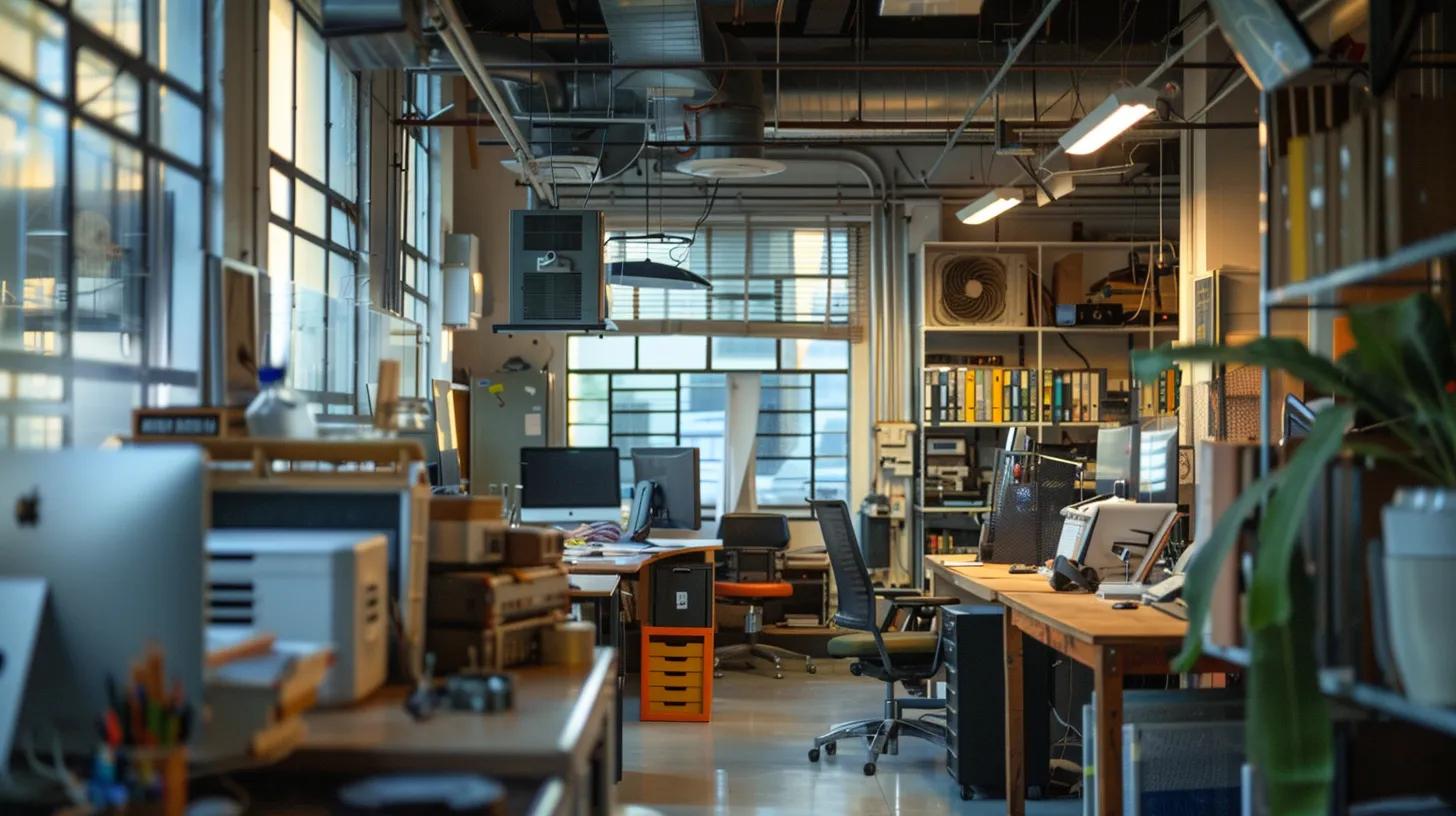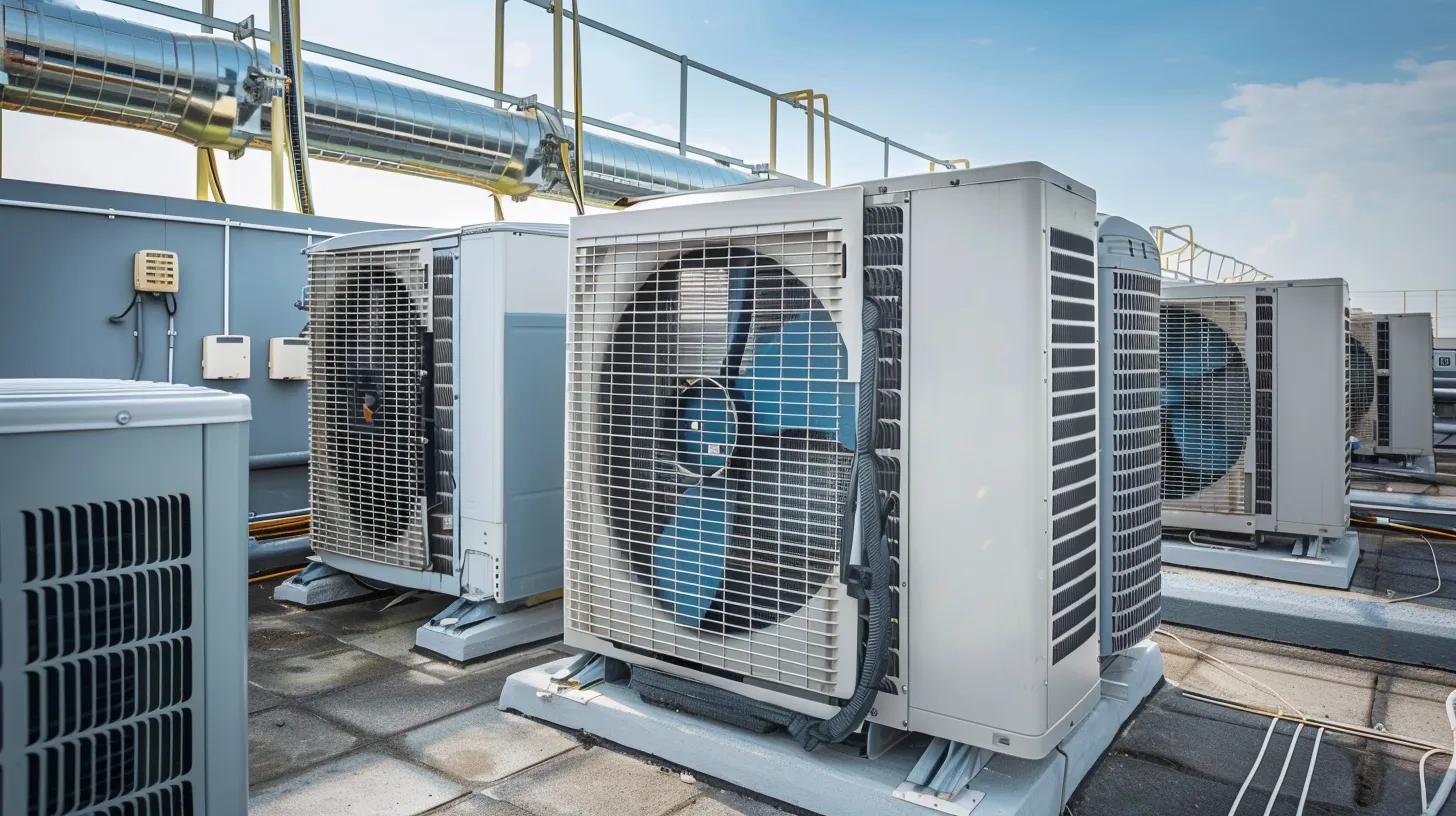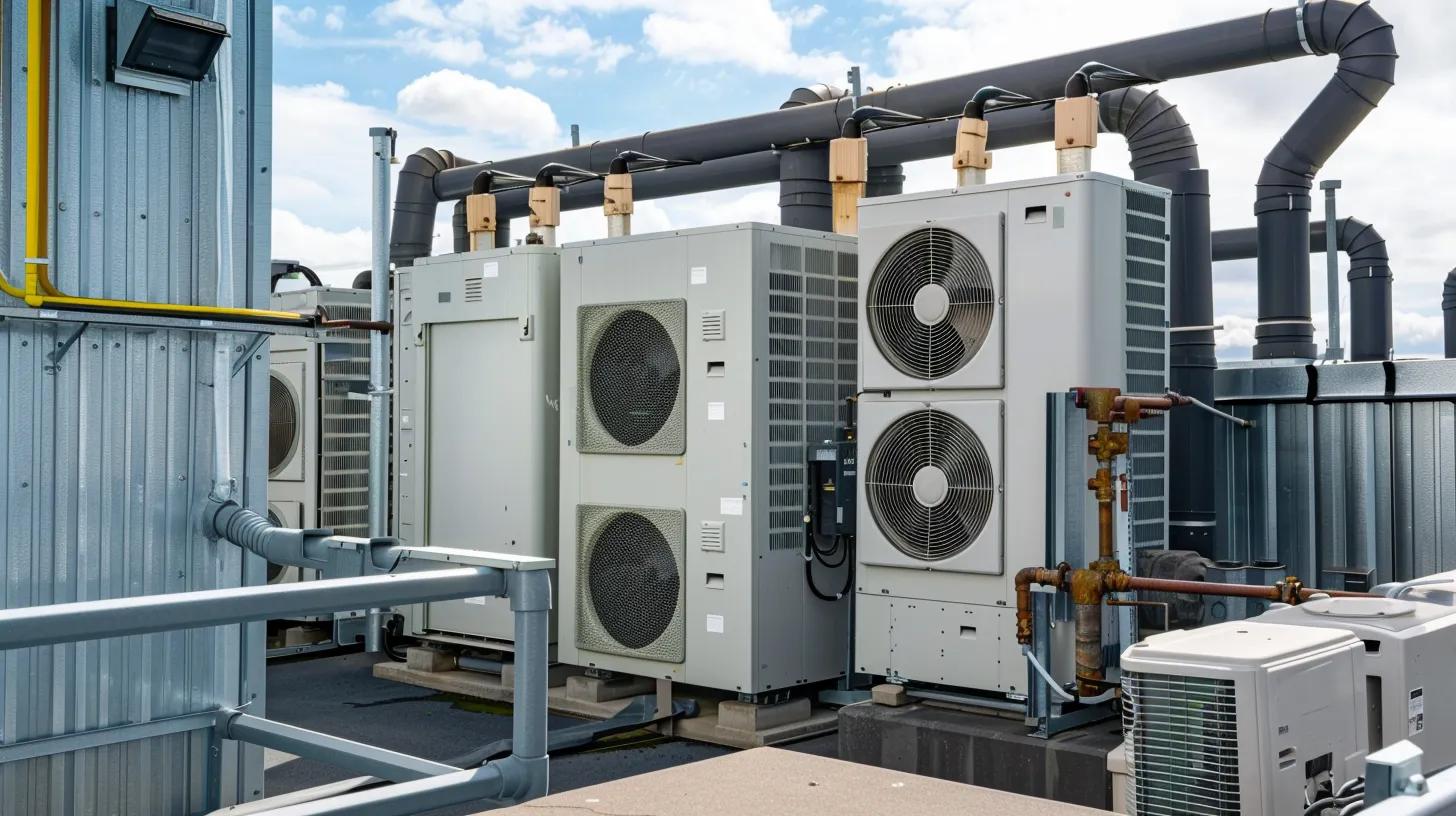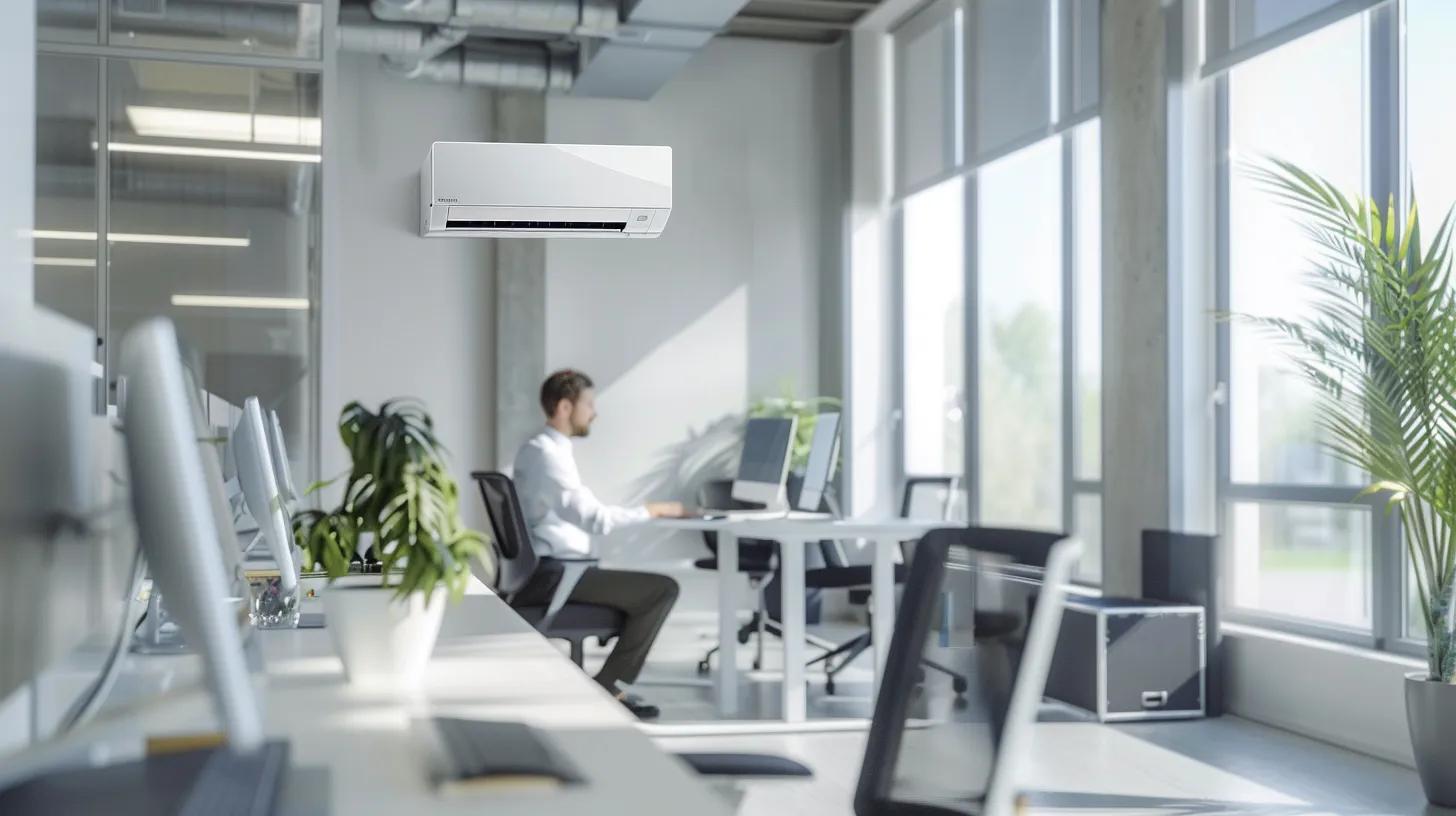
In commercial settings, system failures can lead to significant disruptions, decreased productivity, and increased operating costs. The reliability of heating, ventilation, and air conditioning systems is crucial for maintaining a safe and comfortable indoor environment for employees and customers alike. Businesses in Texas, especially in the
Metroplex, depend on robust and efficient commercial HVAC systems to ensure operational continuity. However, issues such as poor preventative maintenance and installation errors can hinder system performance and cause expensive downtime.
This article outlines the most common causes of HVAC system failures in commercial buildings, explains how these issues affect overall performance, and offers actionable recommendations for prevention and maintenance. By understanding these critical factors, facility managers and business owners can make informed decisions to improve system reliability and extend equipment lifespan.
The following sections summarize the top issues causing HVAC failures, supported by industry data and real-world examples. With a focus on Longhorn Mechanical, Inc.—a trusted provider in the region—this guide equips businesses with essential knowledge to manage HVAC reliability proactively.
Transitioning into these causes, the discussion begins with the importance of preventative maintenance. Operators often underestimate the risks associated with neglecting regular servicing, which can lead to cascading failures and potentially hazardous system shutdowns.
Commercial HVAC systems are built for longevity, yet they encounter several issues. The absence of regular maintenance is a primary culprit. Without scheduled upkeep, dirt accumulates, components corrode, and essential parts wear out, reducing system efficiency and often leading to breakdowns.
High operating hours and exposure to environmental contaminants further accelerate component degradation. For example, dirty condenser coils absorb less heat, stressing compressors and increasing energy demands. Similarly, degraded refrigerant lines may leak, compromising cooling performance and resulting in costly repairs.
Improper filter maintenance can reduce airflow and stress fans and motors, while aging infrastructure with outdated components is more vulnerable to failure. Addressing these maintenance gaps is critical for reducing repair costs and minimizing downtime.
Neglecting routine maintenance allows small issues to worsen over time. Dirt on coils, degraded insulation, and worn belts may remain undetected until they force the compressor to work harder, leading to overheating and failure. Regular servicing helps spot refrigerant leaks and ensures proper filter replacement, keeping the system balanced. In short, disciplined upkeep improves energy efficiency and extends the HVAC system’s lifespan.
Refrigerant is essential for heat transfer. A leak reduces its level, forcing the system to work harder to maintain set temperatures. This extra strain causes components like compressors to overheat and fail. Additionally, refrigerant leaks can lower indoor air quality and, in some cases, harm the environment. Early detection through regular pressure checks and infrared inspections is key to preventing extensive damage and expensive repairs.
Faulty electrical components—such as circuit breakers, capacitors, and wiring—can lead to sudden power loss or erratic system operation. Overloaded circuits and poor wiring connections are common issues in commercial buildings. These failures not only interrupt HVAC operations but also compromise overall system reliability. Regular electrical audits and timely component upgrades help maintain stability and efficiency. commercial HVAC

Air filters are critical for preserving indoor air quality and proper airflow. When filters clog with dust and debris, airflow is significantly reduced. This forces the HVAC system to work harder, raises operating temperatures, and increases wear on essential components like fans and compressors. In addition, poor indoor air quality resulting from dirty filters can contribute to occupant discomfort and health issues. Regular inspections and timely filter replacement are vital to prevent system overloads and maintain efficiency.
Airflow restrictions are evident through uneven cooling or heating, higher than usual energy bills, and visible dust near vents. Occupants may experience discomfort and inconsistent temperatures throughout the facility.
Replacing filters on schedule maintains optimal airflow, reducing the risk of compressor overload and mechanical stress. This not only improves energy efficiency but also prolongs the lifespan of HVAC components.
The compressor is the heart of an HVAC system, responsible for circulating refrigerant. When a compressor fails, the entire system is compromised, resulting in a complete loss of cooling or heating. Overheating—often due to dirty filters, low refrigerant, or obstructed airflow—is a common cause. Excess heat shortens compressor life and can trigger a chain reaction, affecting other components like condenser and evaporator coils. Regular maintenance, including oil checks and diagnostics, is essential to monitor compressor health and prevent unexpected failures.
Restricted airflow from dirty filters or low refrigerant forces the compressor to work harder, leading to overheating. Over time, this excessive workload causes premature breakdown.
Without a functioning compressor, the HVAC system cannot effectively transfer heat. This leads to poor climate control, increased energy consumption, and further strain on other components, creating a cycle of inefficiency and potential system-wide downtime.
Thermostats serve as the control center for HVAC systems. A malfunctioning thermostat may send incorrect signals, causing the system to either overcool or overheat. These errors force the system to cycle improperly, straining components like fans, compressors, and electrical circuits. Modern smart thermostats offer improved accuracy, but issues such as electrical surges or outdated software can still lead to failures. Regular calibration and diagnostic checks can help maintain reliable control and efficient operation.
Common issues include inaccurate temperature readings, delayed responses, and frequent calibration errors. These problems often stem from sensor malfunctions or low battery power, directly impacting system performance.
Control system errors may cause the HVAC system to start and stop repeatedly, forcing mechanical components to endure extra wear. This cycle not only reduces efficiency but can also lead to costly emergency repairs and extended downtime.

Even a well-maintained HVAC system can fail if it is improperly installed or designed. Incorrect system sizing, poor duct design, or loose wiring can lead to operational inefficiencies. An undersized system may struggle to meet building demands, while an oversized unit cycles too frequently, both leading to increased wear on components. Proper installation by certified technicians—ensuring that equipment is appropriately sized, positioned, and integrated—is essential to achieve balance in airflow, refrigerant distribution, and energy use.
Incorrect sizing forces the system to operate outside its optimal capacity. An undersized system may not meet the cooling or heating needs, while an oversized system cycles on and off too frequently, both resulting in undue wear and reduced efficiency.
Professional installation of commercial HVAC systems minimizes risks by ensuring that all components are correctly sized, positioned, and integrated. This reduces issues like airflow imbalances and electrical malfunctions, thereby extending the system’s operational life and lowering repair costs.

Preventative maintenance is key to effective HVAC management. A proactive maintenance strategy identifies problems before they escalate. Regular inspections, routine cleaning, and scheduled component replacements help prevent issues such as refrigerant leaks, electrical malfunctions, and airflow obstructions. This not only ensures consistent performance and indoor air quality but also reduces downtime and repair costs. Partnering with reputable service providers—like Longhorn Mechanical, Inc.—which offer 24/7 emergency repair services, further minimizes disruptions.
Such contracts reduce system downtime, extend equipment lifespan, and lower energy costs by ensuring regular inspections, timely repairs, and systematic component replacements.
Immediate repair services address system issues as soon as they occur, reducing the risk of prolonged downtime and preventing extended operational disruptions.
An energy-efficient HVAC system consistently performs well while reducing operational costs. When a system fails, energy waste is often noticeable through high utility bills and uneven temperature distribution. Modern systems with components like programmable thermostats and variable speed drives achieve optimal performance, reduce unnecessary strain, and extend equipment life. Regular energy audits help identify inefficiencies, guiding targeted upgrades that support both sustainability and reliable operation.
Indicators include high energy bills, frequent cycling of system components, and uneven temperature distribution. These signs suggest the system is overworking, likely due to underlying failures.
Upgrades such as variable speed compressors and smart thermostats not only improve energy efficiency but also reduce mechanical stress, leading to longer-lasting and more reliable HVAC systems.
Q: What is the most common cause of HVAC system failures in commercial buildings? A: The most common cause is poor preventative maintenance, which leads to issues like dirty filters, refrigerant leaks, and suboptimal electrical performance. Without regular upkeep, minor issues can escalate into major failures.
Q: How do refrigerant leaks affect HVAC performance? A: Refrigerant leaks reduce heat exchange efficiency, forcing the compressor to work harder and increasing energy consumption. This excessive strain can lead to premature failure and higher repair costs.
Q: Why is maintaining clean air filters crucial for HVAC systems? A: Clean air filters ensure proper airflow, preventing system overload, reducing energy consumption, and decreasing the risk of fan or compressor failures.
Q: What steps can businesses take to prevent HVAC system failures? A: Regular, scheduled preventative maintenance—including filter changes, electrical inspections, and refrigerant checks—is essential. Upgrading components and working with professional service providers also enhance reliability.
Q: How does upgrading HVAC components improve system reliability? A: Modern components, such as variable speed compressors and smart thermostats, improve control precision and reduce mechanical stress, resulting in improved energy efficiency and longer equipment life. Explore our commercial HVAC solutions.
Q: What role does professional installation play in preventing HVAC failures? A: Professional installation ensures that systems are correctly sized, installed, and calibrated, reducing issues like improper airflow and electrical malfunctions.
Q: How can energy audits improve HVAC system performance? A: Energy audits detect inefficiencies such as energy waste and uneven temperature distribution, enabling targeted maintenance and upgrades that enhance overall reliability.
Long-term HVAC reliability in commercial settings depends on addressing issues like poor maintenance, refrigerant leaks, electrical failures, and outdated components. Consistent preventative maintenance, energy-efficient upgrades, and proper installation work together to ensure robust system performance. Businesses that invest in these strategies experience reduced downtime, optimized energy usage, and longer HVAC lifespans. By maintaining a rigorous maintenance schedule and prioritizing system upgrades, companies can safeguard their operational efficiency and minimize costly disruptions.
Site Design by Mark Thomas Media